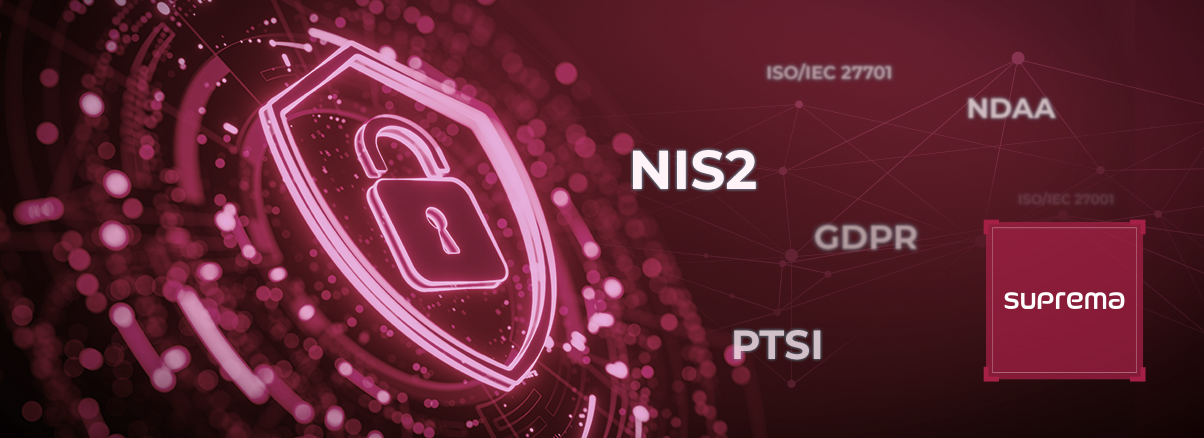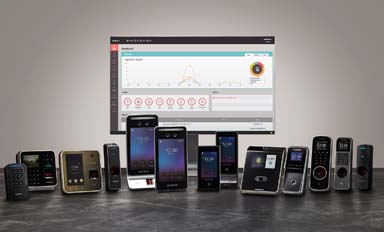- Latest press releases from Suprema

The Korean security market is booming and experiencing growth. Yet various challenges still remain. This article looks at some of the challenges in the Korean security market, and how security players are overcoming these challenges.
A booming market
In the previous article we mentioned Korea has a booming security market. The growth is primarily driven by demand from both the public and private sectors. “Korea stands out globally with an impressive density of security cameras, reaching approximately 19.6 million installations. This extensive CCTV coverage underscores a robust demand for surveillance and security solutions across both public and private sectors,” said Chuck Jeon, VP and Head of the APAC Sales Department of Hanwha Vision.
Challenges
This however is not to say the Korean security market is not without any challenges. One of the biggest challenges is intense competition in the market, especially from Chinese manufacturers.
“Not only major Chinese manufacturers, but also second-tier manufacturers are rushing to establish branches in Korea. In the past, they targeted the distribution market with competitive pricing, but recently, there seems to be a movement to enter government-related markets by manufacturing within Korea,” said Sungin Kim, Marketing Team Leader at Webgate.
Competition with Chinese firm in overseas markets also presents a challenge for Korean manufacturers, some of whom continue to feel the competitive pressure even with the enactment of NDAA or related measures in those regions.
“After the implementation of the NDAA, there was an expectation that many Korean companies would benefit in regions where they held a competitive advantage over Chinese products. However, it appears that this mostly applies to a few large companies. The biggest issue is that the localization strategies previously employed by Chinese companies are, in reality, quite difficult for small and medium-sized Korean companies to execute. Additionally, the low market prices established by Chinese companies in the past have not easily changed,” Kim said.
Another challenge is the fact that the regulatory environment in Korea has become tougher. “Korea is actively discussing regulations around data privacy and AI usage, driven by the rapid expansion of AI across industries. This regulatory effort is crucial as AI and biometric data become integral to daily systems, especially in security,” said Hanchul Kim, CEO of Suprema.
How to stay ahead
That said, Korean companies are working hard to overcome these challenges and win out in the competition. Below we take a closer look at some of the strategy they've taken in this regard.
A focus on quality
Korean companies place a strong focus on product quality to as a way to differentiate. “We are striving to differentiate ourselves from Chinese products by leveraging the quality competitiveness we secured during the OEM era with Samsung Techwin (now Hanwha Vision) and our recent over five-year experience of supplying products to the rapidly growing Japanese market. Additionally, we are working on product differentiation strategies, including developing specialized products like fire detection solutions, and creating specialized features for the financial and factory markets,” Kim said.
Comprehensive support and service
Aside from product itself, companies also focus on offering comprehensive support and service. “Competition from Chinese products in the Korean security market is intense, but coexistence exists. To stay ahead, companies need reliable and secure products, strong pre-sales support and technical help, and excellent after-sales service. Hanwha Vision, for example, excels in this area by offering thorough after-sales management based on the stability and reliability of its products. This commitment helps maintain long-term customer relationships and satisfaction,” Jeon said.
“We provide world-class AI-based biometric authentication, and integrated security platforms to various industries worldwide with proven reliability and stability. The key differentiated factor is that Suprema provides customizable services to meet customer needs, offering end-to-end total security solutions from consulting to implementation, with consistent service quality across global markets. This makes Suprema a premium brand in both Korea and global,” Kim of Suprema said.
Making products cyber-secure
Making products cyber-secure and conformant to relevant standards is another winning strategy to take. “Suprema leads the way in this field, offering software and hardware designed to meet global standards,” Kim said. “At every stage of product design and development, Suprema complies with the stringent privacy and data protection law of EU, US, and UK including NIS2, GDPR, PSTI, NDAA, and adheres to ISO/IEC 27001 and ISO/IEC 27701. These achievements position Suprema as a trusted partner for business in highly regulated industries.”
Source: asmag.com












